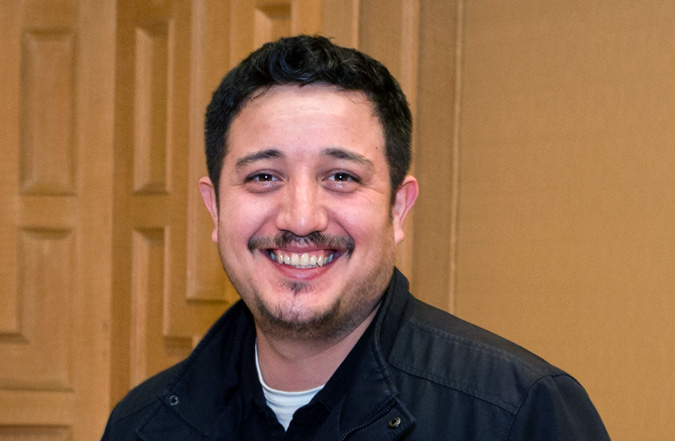
Thomas Threlkeld is a Wendy’s Wonderful Kids worker in Omaha, Nebraska, and graduate of the 2019 APLD program. He has been working with children and families for 10 years.
Each fellow completes an action research project as part of their work. Thomas’s project was to develop a “Trauma 101” training for people working with children in foster care. We talked with him about his work and what motivates him.
Why do you think a Trauma 101 training is necessary?
Every child in foster care has experienced some kind of trauma. In this field, we talk a lot about the importance of being trauma-informed and providing trauma-informed care. And there are a lot of comprehensive, in-depth trainings out there.
But through my work training parents and working with children, I came to believe that foster parents and professionals were missing some key concepts. I created a one-hour training that draws from existing trauma research, literature, and strategies to address what I saw as a knowledge gap.
What are your key messages in trauma trainings? What do you hope that people will take away?
We’re taught that consequences and rewards change people’s behavior—if you do X, then you will or won’t get Y. This approach may be effective in working with kids who have healthy connections and relationships. But, in my experience, this does not always work for children who have experienced severe trauma and loss. How can artificial consequences (like taking away TV time or video games) be effective when these children are trying to reconcile the tremendous loss they have experienced and lack meaningful connections?
I want people attending Trauma 101 to come away knowing that before a professional or parent can undertake effective consequences and behavioral change, they have to create a sense of safety and build a relationship with the child. Only by first creating those connections will our idea of behavior modification work.
Another important part of the Trauma 101 class is helping caregivers understand how they may influence a child’s behavior. Could a caregiver’s own unaddressed trauma be limiting their ability to see a behavior from a trauma-based perspective? Could their reactions to a child’s behavior be triggering the child? It’s easy to put labels on children and to focus on their negative behaviors. It is much harder to look inward and examine our own shortcomings in managing a situation or behavior.
Your experience in foster care strongly influences your work with young people today. Can you talk a bit about that?
I was in foster care as a young child and was adopted when I was four years old. That was three decades ago, long before widespread awareness of how trauma effects children.
The family who adopted me didn’t understand my behaviors or how to respond to them. So the behaviors intensified. I ended up back in the system at eight years old and bounced around foster homes and group homes until I aged out of the system.
I have a vivid memory of sitting on a bed in a group home as a child with no possessions, no meaningful relationships, and not even my own cloths and thinking: I will never let anybody hurt me again. And for a very long time, I didn’t. I didn’t feel pain or sadness. But this also meant I couldn’t feel happiness or joy either. I lost touch with who I really was and became numb and disconnected.
I went through trauma therapy as an adult and was able to fully understand how trauma affected me throughout my life. I realized that there is hope. And I discovered that my personal and professional experience gave me a unique perspective that could help others.
How did participating in APLD affect your work? What’s next?
The program staff and my mentor challenged me to go further with my trauma work than I’d ever imagined. The Trauma 101 training is the tangible outcome. But an important part of creating it was the behind-the-scenes work—the surveys, literature review, focus groups, data analysis—that helped me think more critically about the issue.
I must admit that before APLD, data analysis was something I considered boring. But now that I have a better understanding of how to gather, read, and interpret data, it is much more interesting!
As far as what’s next, I’m taking this show on the road! Participating in APLD opened new opportunities for me to train at other agencies and conferences in the future.
Stay in touch!
Sign up to be notified when we are accepting APLD applications and receive other information for professionals from AdoptUSKids.